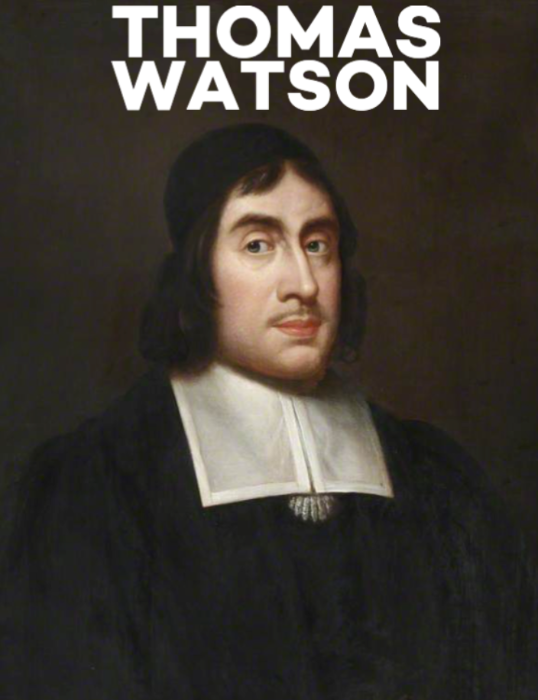Thomas Watson said, “Repentance is a grace of God’s Spirit whereby a sinner is inwardly humbled and visibly reformed.” The Doctrine of Repentance, 18.
Thomas Watson (1620-1686) was born probably in Yorkshire, England. In his life, Thomas Watson, married Abigail Beadle in 1647. Thomas and Abigail had at least seven children during their marriage. Watson’s life was one that had many trials. Despite being strongly Presbyterian, during the English Civil War, Watson was sympathetic to the Monarchy. In 1651, he was imprisoned for a plot to reinstate Charles II in England, leading to the execution of his friend, Christopher Love. However, Watson was released under a petition for mercy.
Over time Watson’s convictions on church and state changed, he became a nonconformist and was against the Church of England. This is because in 1662 he refused to comply with the Act of Uniformity that declared all public prayers, how the sacraments were to be administered and the ordination process of Bishops, Priests, and Deacons within the Church of England must conform to the rites and ceremonies prescribed in the 1662 Book of Common Prayer. Non-conformity would result in serious consequences of removal from the church and the potential of exile, prison, and even death.
Watson and other clergy disagreed with the act, resulting in his removal from the pastorate. Even with no church building, he could not be stopped from preaching, even when it was illegal. He preached in barns, homes, and in the woods. Wherever he could preach, he did!
In 1666, after the Great Fire of London, Watson prepared a large room for public worship, welcoming anyone who wished to attend. In 1672, after the ‘Act of Indulgences’ (granting religious freedom), Watson obtained a license for Crosby Hall, Bishopsgate, where he preached until his health failed. Watson died in 1686 while in his home in Essex. It is believed that he died while praying in his prayer closet. Thomas Watson left this life and entered into glory all while communing with God.
C.H. Spurgeon said, “Happy were the citizens who regularly attended so instructive and spiritual a ministry [under Thomas Watson] … Going in and out among his flock, fired with holy zeal for their eternal welfare, his years rolled on pleasantly enough amid the growing respect of all who knew him.”
Amongst the Puritans, Thomas Watson is known for his concise writing, gift of illustration, and application for the Christian journey. To learn more from Thomas Watson, read his books All Things for Good and The Doctrine of Repentance

